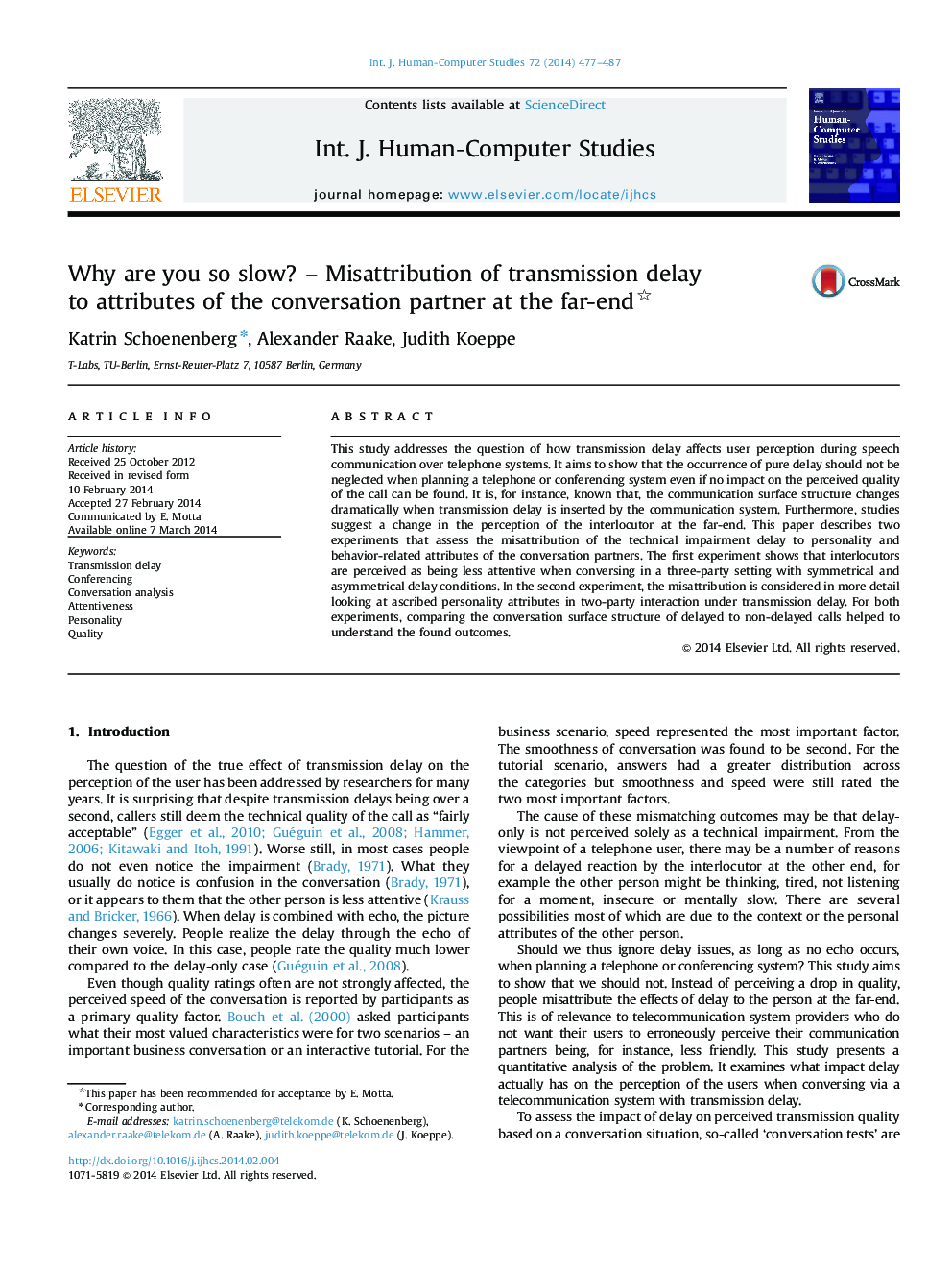| کد مقاله | کد نشریه | سال انتشار | مقاله انگلیسی | نسخه تمام متن |
|---|---|---|---|---|
| 401860 | 1438986 | 2014 | 11 صفحه PDF | دانلود رایگان |

• With delays up to 1200 ms, no effect found for the perceived quality in both studies.
• With high delays, interlocutors are perceived less attentive, extraverted and conscientious.
• Conversational courses change justifying a different attribute perception.
• Misattribution of the impairment speech delay to attributes of the interlocutor.
This study addresses the question of how transmission delay affects user perception during speech communication over telephone systems. It aims to show that the occurrence of pure delay should not be neglected when planning a telephone or conferencing system even if no impact on the perceived quality of the call can be found. It is, for instance, known that, the communication surface structure changes dramatically when transmission delay is inserted by the communication system. Furthermore, studies suggest a change in the perception of the interlocutor at the far-end. This paper describes two experiments that assess the misattribution of the technical impairment delay to personality and behavior-related attributes of the conversation partners. The first experiment shows that interlocutors are perceived as being less attentive when conversing in a three-party setting with symmetrical and asymmetrical delay conditions. In the second experiment, the misattribution is considered in more detail looking at ascribed personality attributes in two-party interaction under transmission delay. For both experiments, comparing the conversation surface structure of delayed to non-delayed calls helped to understand the found outcomes.
Journal: International Journal of Human-Computer Studies - Volume 72, Issue 5, May 2014, Pages 477–487